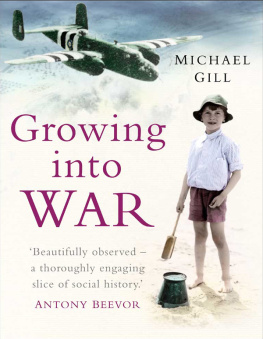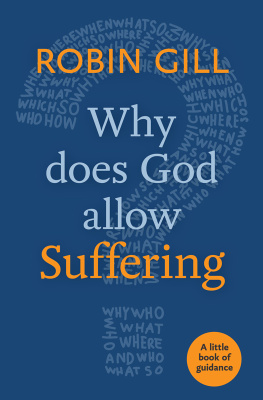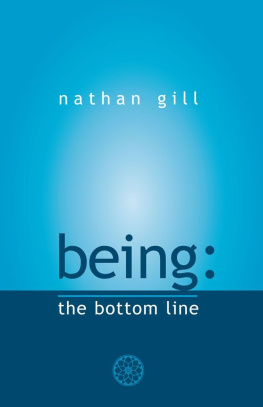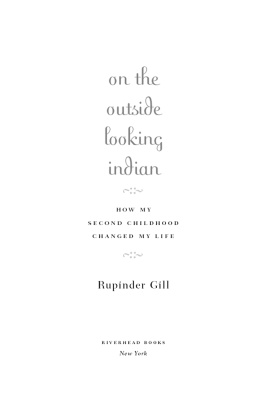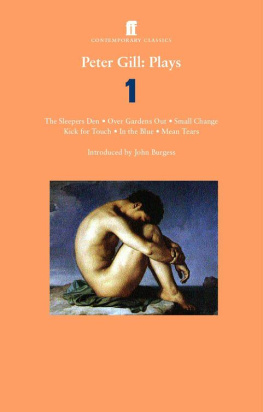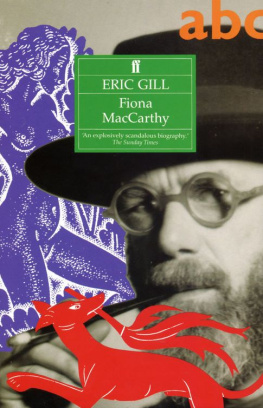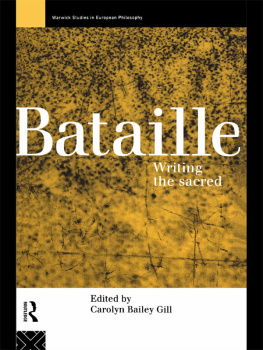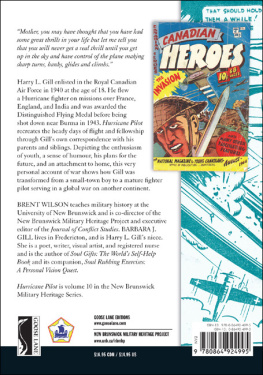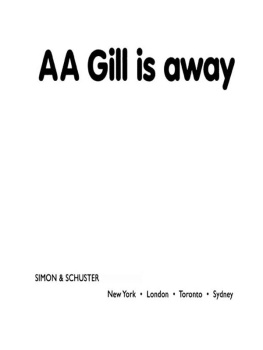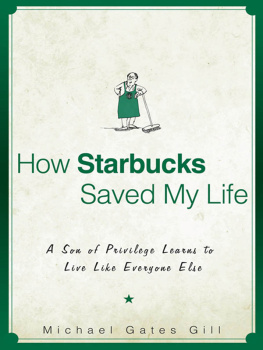Michael Gill - Growing into War
Here you can read online Michael Gill - Growing into War full text of the book (entire story) in english for free. Download pdf and epub, get meaning, cover and reviews about this ebook. year: 2013, publisher: The History Press, genre: Non-fiction. Description of the work, (preface) as well as reviews are available. Best literature library LitArk.com created for fans of good reading and offers a wide selection of genres:
Romance novel
Science fiction
Adventure
Detective
Science
History
Home and family
Prose
Art
Politics
Computer
Non-fiction
Religion
Business
Children
Humor
Choose a favorite category and find really read worthwhile books. Enjoy immersion in the world of imagination, feel the emotions of the characters or learn something new for yourself, make an fascinating discovery.
- Book:Growing into War
- Author:
- Publisher:The History Press
- Genre:
- Year:2013
- Rating:5 / 5
- Favourites:Add to favourites
- Your mark:
- 100
- 1
- 2
- 3
- 4
- 5
Growing into War: summary, description and annotation
We offer to read an annotation, description, summary or preface (depends on what the author of the book "Growing into War" wrote himself). If you haven't found the necessary information about the book — write in the comments, we will try to find it.
Michael Gill: author's other books
Who wrote Growing into War? Find out the surname, the name of the author of the book and a list of all author's works by series.
Growing into War — read online for free the complete book (whole text) full work
Below is the text of the book, divided by pages. System saving the place of the last page read, allows you to conveniently read the book "Growing into War" online for free, without having to search again every time where you left off. Put a bookmark, and you can go to the page where you finished reading at any time.
Font size:
Interval:
Bookmark:
Growing into
W AR
M ICHAEL G ILL
Foreword by
A.A. G ILL

First published in 2005
The History Press
The Mill, Brimscombe Port
Stroud, Gloucestershire, GL5 2QG
www.thehistorypress.co.uk
This ebook edition first published in 2013
All rights reserved
Michael Gill, 2005, 2013
The right of Michael Gill to be identified as the Author of this work has been asserted in accordance with the Copyrights, Designs and Patents Act 1988 .
This ebook is copyright material and must not be copied, reproduced, transferred, distributed, leased, licensed or publicly performed or used in any way except as specifically permitted in writing by the publishers, as allowed under the terms and conditions under which it was purchased or as strictly permitted by applicable copyright law. Any unauthorised distribution or use of this text may be a direct infringement of the authors and publishers rights, and those responsible may be liable in law accordingly.
EPUB ISBN 978 0 7524 9593 4
Original typesetting by The History Press
I dedicate this book to my three children,
Adrian, Nicholas and Chloe
C ONTENTS
L IST OF I LLUSTRATIONS
Copyright note
The extract from Stephen Spenders poem I think continually of those who were truly great on p. 170 is reproduced by kind permission of Faber & Faber Ltd.
F OREWORD
M y father never wrote at a desk. He always sat on the sofa and used a felt tip pen to write in longhand on a clipboard surrounded by books, larded with ripped-up paper bookmarks. A desk would have been too formal, too reminiscent of his father the bank manager. He didnt wear suits or ties either or go in for any of the coded trappings of probity, the Establishment or the past.
He was a man who was happy to be at home in his time. He liked contemporary things, contemporary people and ideas. I never once heard him hanker for yesterday, or ever wax nostalgic. He was a man of his age and worked in the medium that both marked and identified the age television.
He wrote constantly: scripts, proposals, drafts, letters, chapters of books, the start of journals and for me, postcards. School breakfasts were an expectation of a card from dad. He travelled a lot filming and theyd arrive with pictures of strange cathedrals or exuberant statues and his familiar, timidly excited handwriting that seemed to be fighting its classical pre-war education to become something a little more extempore. The cards were always civilised. He had a passion for museum shops and church porch racks, and his cards were always full of information, facts and observations, wrapped up with pithy, often funny opinions. They were like scenes from a shooting script.
He never wasted time with the Wish you were here, weathers lovely... foods foreign... stuff and a small but lasting part of my education came from these postcards. Not least the lesson that anything worth saying can be said both succinctly and elegantly, and that the prime purpose of writing to anyone, be it a letter, an article or a book, is not to show them how clever you are, but to leave them cleverer than they were.
When he finally finished making television programmes he settled down on the sofa with his annotated books and started to write. Wed all encouraged him to embark on a book. He has a charmingly faceto-face style, a turn of phrase that is only a voice away from listening to him; and some memoirs from the pioneering public-service age of broadcasting would have been interesting and a gift for posterity. Hed interviewed Marilyn Monroe, worked with Giacometti and plenty of other interesting people in between. Wed all lived in London during the Sixties.
So it was a surprise when he started writing the story of his childhood. It seemed very previous. When I was a child he told us stories, but they were invariably about his dog, Patch. I had only the haziest idea of his early life or our antecedants beyond my grandparents. Id never imagined that he really thought it that important. He always seemed to have that self-contained confidence that is the consolation of the only child.
What we didnt know was that he was, already, incubating the first losses of Alzheimers. I write about him in the past tense, though hes not dead, and I dont mean to imply that hes any less alive, or any less my dad, but dementia and the rubbing-out of words, connections and memories are a great and widening moat that separates the him on this side from the man that was on the other.
When I read this book for the first time, hed already crossed over, and pulled up the drawbridge. It was a huge shock. Id never heard any of it before. This life that was so vivid, so beautifully remembered and reconstructed. I would never be able to talk to him about it, ask him about this marvellous cast of characters. But as I read it I understood that that was exactly the reason and the rightness for going back. My father was as much a self-made, self-thought-up man as anyone youll meet.
The choices we make and the courses we plot are cause and effect of where we started and who we started with. The man my father became and whom I knew wasnt so much a reaction against the world he was brought up in, but someone who felt that he and his generation had an obligation to change and improve it. I realised there is far less distance between my childhood and my childrens than between mine and my fathers.
There was another pressing reason to write this down. The Alzheimers meant that it would all be lost and broken into shards of non-sequitur and nonsense. This book is Daddy committing his memories to the lifeboats, this is what got out, this is what survived and made it safely into print. Women and childhood first.
A.A Gill
London 2005
D ISTANT R ELATIONS
I
T he first thought that I can recall something that came from my own mind as opposed to feelings and reactions to outside events this thought, powerful enough to seem still vivid over sixty years later, came to me on a summer Sunday morning in 1929.
My parents had just built a house in Herne Bay, the small town on the south-east coast of England to which we had moved. It was near the brow of a hill on what was a wheat field when we first saw it. Ours was the first house on a new concrete byroad that was built at the same time.
Every Sunday morning my father would play golf while my mother cooked the lunch. Coming from a Yorkshire farm, she was a very good cook. Often, when the roast beef was nearly ready, we would walk together over the fields to meet my father returning from the golf club in the valley.
One day she told me I could go and meet him by myself. I was nearly six years old and about to start school. I was very proud of the responsibility. She waved me goodbye from the door.
I walked up the road to where it petered out in a wilderness of nettles and thistles and took the familiar path across the fields. Rabbits scuttled away into the hedgerows. I climbed the first stile, between the pallid blooms of wild rose. This was a favourite playground: a wide breast of the hill, comfortable to lie back on and watch the occasional biplane rising and falling as it droned its way across the Channel to distant magical places. A few months before, when it had been bright with poppies, I ran straight into a larks nest, a rough twist of grass holding four tiny eggs. Now I walked firmly forward, not even stopping to see how ripe the blackberries were. I was pleased with my independence.
When I crossed the second stile I began to falter; I would soon be entering unfamiliar territory. Then I saw my father coming into sight over the slope. I felt a tremendous wave of pleasure and excitement. I rushed up to him and banged him on the knee, explaining that I had been sent to hurry him up, as lunch was ready. (He was often a little late, if the nineteenth hole proved a long one.)
Next pageFont size:
Interval:
Bookmark:
Similar books «Growing into War»
Look at similar books to Growing into War. We have selected literature similar in name and meaning in the hope of providing readers with more options to find new, interesting, not yet read works.
Discussion, reviews of the book Growing into War and just readers' own opinions. Leave your comments, write what you think about the work, its meaning or the main characters. Specify what exactly you liked and what you didn't like, and why you think so.

